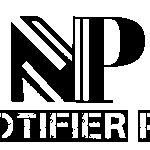In a significant move to combat financial fraud and trade-based money laundering, the Federal Board of Revenue (FBR) has taken strict action against several solar panel import companies in Pakistan. These companies have been slapped with an enormous fine of Rs111 billion for allegedly engaging in large-scale over-invoicing and money laundering through fake documentation and shell companies.
According to official sources, the accused companies inflated the value of their solar imports by a staggering Rs120 billion using falsified invoices and documents. In addition, they allegedly funneled around Rs140 billion through fake companies to conceal illegal transactions and move funds abroad without detection. These acts, according to the FBR, are a textbook example of trade-based money laundering—a practice that damages the national economy by evading taxes and manipulating import data.
In an aggressive enforcement move, the FBR has seized 327 containers connected to the implicated companies. These containers are scheduled to be auctioned off, with authorities expecting to recover Rs1.5 billion from their contents. As part of the crackdown, officials are also analyzing other importers to identify similar fraudulent behavior.
Over-invoicing is a common strategy used to artificially increase import values, allowing companies to illegally move capital out of the country. This not only impacts the state’s tax revenue but also undermines fair competition in the marketplace. According to Wikipedia, trade-based laundering is one of the most complex and difficult types of financial crime to detect because it often uses legitimate trade channels to move illicit funds.
The FBR has called this crackdown a major win in its ongoing battle against illicit money flows. It sends a clear message to businesses that such illegal activities will not be tolerated. The FBR aims to restore transparency and fairness to Pakistan’s import-export sector and eliminate loopholes that allow for financial manipulation.
According to a CNN report on global financial crime, countries that ignore trade-based laundering risk significant damage to their economic stability and credibility in international markets.
In a public statement, FBR officials emphasized that more investigations are underway, and additional checks on import documents will be introduced soon. They pledged that all companies found involved in fraudulent activity will face similar consequences, including heavy fines, asset seizures, and possible criminal prosecution.
This move is part of Pakistan’s broader efforts to comply with international anti-money laundering (AML) frameworks. According to Dawn, the action taken against solar firms is one of the largest crackdowns of its kind in recent years and could reshape how import businesses operate in the country.
The public response to the FBR’s operation has been largely positive. Many in the business community and civil society have welcomed the transparency drive, saying it will help build a fairer system and restore investor confidence. Clean and legal trade is considered essential for Pakistan’s long-term economic growth and credibility in the global financial system.
As Pakistan continues to expand its renewable energy sector, the FBR’s crackdown also sends a message to those who may seek to exploit the demand for solar technology. Transparency, legal compliance, and fair business practices will be enforced without compromise.





